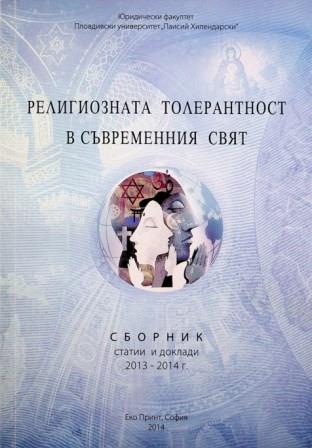Религиозната толерантност в България през Средновековието
Religious Tolerance in Medieval Bulgaria
Author(s): Emanuil Dimitrov
Subject(s): Law, Constitution, Jurisprudence, History of Law, Canon Law / Church Law
Published by: Пловдивски университет »Паисий Хилендарски«
Keywords: religion; tolerance; medieval Bulgaria
Summary/Abstract: The following article deals with the issue of religious tolerance in Bulgaria during the Medieval times. It sifts through Bulgarian history from forming of the state to falling under the Ottoman yoke. The article starts with the religious believes of the thee major ethnic groups which participated in forming of Bulgarian medieval state: thracians, slavs and bulgars. The research is centered around their common religious relations and influences. The other issue is the anti-Christian persecutions during the pagan age of the First Bulgarian Empire. The intolerant actions of the khans can be explained with the fear of Byzantine influence and eventual loss of sovereignty. A turning point in the Bulgarian history is the period of christianization and the following results. Conversion to Christianity, at first, meets great opposition among the Bulgar nobility, but the actions taken by Boris I deserves to be mentioned. The article pays attention to another problem in our society during the Middle ages – the Bogomilism. This gnostic religious and political sect calls for a return to early Christianity, rejecting the ecclesiastical hierarchy, and its primary political tendencies are resistance to the state and church authorities. This religious movement is met by heavy contempt and intolerance of the ruling class from its beginning to the fall of the Second Bulgarian Empire. The final issue is the relations between the crusaders and the orthodox Bulgarians during the crusades.
Book: Религиозната толерантност в съвременния свят : Сборник статии и доклади 2013-2014
- Page Range: 87-108
- Page Count: 22
- Publication Year: 2014
- Language: Bulgarian
- Content File-PDF

